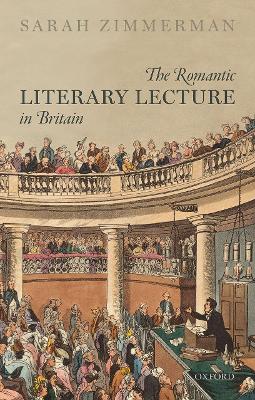At the beginning of the nineteenth century, the literary lecture arrived on London's cultural scene as an influential critical medium and popular social event. It flourished for two decades in the hands of the period's most prominent lecturers: Samuel Taylor Coleridge, John Thelwall, Thomas Campbell, and William Hazlitt. Lecturers aimed to shape auditors' reading habits, burnish their own professional profiles, and establish a literary canon. Auditors wielded their
own considerable influence, since their sustained approbation was necessary to a lecturer's success, and independent series could collapse midway if attendance waned. Two chapters are therefore devoted to the auditors, whose creative responses to what they heard often constituted cultural works in
their own right. Auditors wrote poems and letters about lecture performances, acted as patrons to lecturers, and hosted dinners and conversation parties that followed these events. Prominent auditors included John Keats, Mary Russell Mitford, Henry Crabb Robinson, Catherine Maria Fanshawe, and Lady Charlotte Bury. The Romantic public literary lecture is a fascinating cultural phenomenon in its own right, but understanding the medium has significant implications for some of the period's most
important literary criticism, such as Coleridge's readings of Shakespeare and Hazlitt's Lectures on the English Poets (1818). The book's two main aims are to chart the emergence of the literary lecture as a popular medium and to develop a critical approach to these events by drawing on an
interdisciplinary discussion about how to treat historical speaking performances.
- ISBN10 0198833148
- ISBN13 9780198833147
- Publish Date 31 January 2019
- Publish Status Active
- Publish Country GB
- Imprint Oxford University Press
- Format Hardcover
- Pages 254
- Language English
